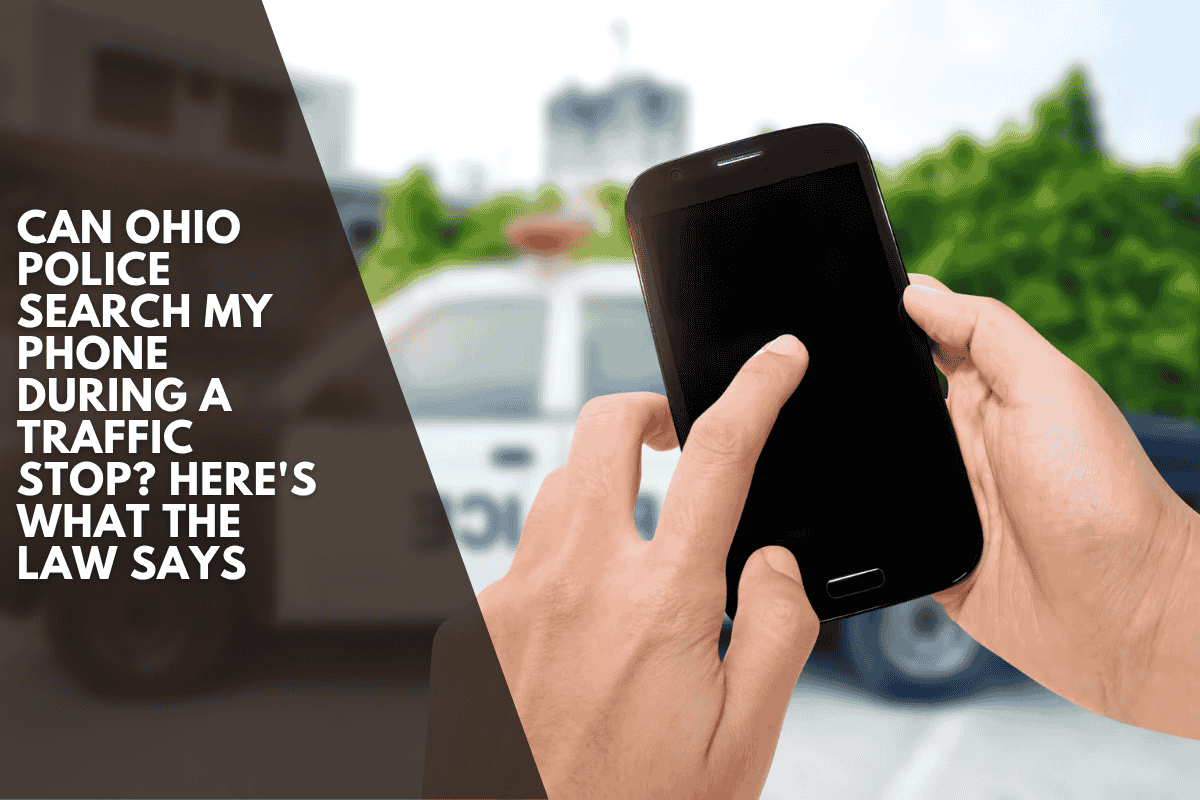In Ohio, police cannot search your phone during a traffic stop without your consent or a warrant in nearly all circumstances. Both state and federal court decisions, as well as Ohio’s own distracted driving law, provide strong privacy protections for your digital devices.
Warrant Requirement and Privacy Protections
The Ohio Supreme Court has clearly ruled that police officers must obtain a warrant to search the contents of your cell phone—even if you are arrested—unless there are immediate concerns for officer safety or imminent destruction of evidence.
This means that during a routine traffic stop, such as for speeding or a minor violation, officers do not have the right to search your phone without your explicit, voluntary consent or a judge-issued warrant.
This standard was set in the landmark State v. Smith decision, which recognized that cell phones contain vast amounts of personal information and are not analogous to wallets or purses. The court found that the Fourth Amendment’s protection against unreasonable searches and seizures extends fully to the digital contents of your phone.
Ohio’s Distracted Driving Law: Extra Protections
Ohio’s distracted driving law, which regulates texting and phone use while driving, goes even further to protect your rights. If you are stopped for suspected texting while driving, the law requires officers to inform you that you have the right to refuse consent to a search of your phone. Officers cannot coerce, threaten, or improperly pressure you into allowing a search. They also cannot take your phone or search it while waiting for a warrant unless you give clear, voluntary consent.
If you do give consent, it must be unequivocal and voluntary. A general consent (such as simply saying “yes”) gives the officer broad access to your device. If you wish to limit the search, you must state specific restrictions (for example, “You may only view my call log”).
Probable Cause and Exceptions
There are very limited exceptions to the warrant requirement. If police have probable cause to believe your phone contains evidence of a crime and there is a risk that evidence will be destroyed before a warrant can be obtained, they may seize (but not search) your phone until a warrant is issued.
Only in urgent situations involving officer safety or imminent loss of evidence can a search occur without a warrant, and these exceptions are narrowly interpreted by courts.
What to Do If Asked
If an officer asks to search your phone during a traffic stop:
You have the right to refuse. Politely state, “I do not consent to a search of my phone.”
If you do not consent, the officer cannot search your phone unless they obtain a warrant.
If you hand over your phone and unlock it, you are likely granting consent for a search.
Ohio law provides robust privacy protections for your cell phone during a traffic stop. Police cannot search your phone without your explicit consent or a warrant, except in rare, urgent situations.
If you are stopped, you have the right to refuse a search, and officers are required by law to inform you of this right if the stop involves suspected distracted driving. Always exercise your rights respectfully and clearly to protect your privacy.
Sources
[1] https://www.aclu.org/press-releases/ohio-supreme-court-decision-cell-phone-searches-protects-privacy-and-due-process
[2] https://www.supremecourt.ohio.gov/rod/docs/pdf/0/2009/2009-ohio-6426.pdf
[3] https://www.courtnewsohio.gov/cases/2014/SCO/cellphonesCase_071514.asp
[4] https://www.koffellaw.com/blog/ohio-supreme-court-ruled-on-cell-phone-searches/
[5] https://www.rittgers.com/blog/2024/09/does-ohios-distracted-driving-law-allow-police-officers-to-search-my-phone/











